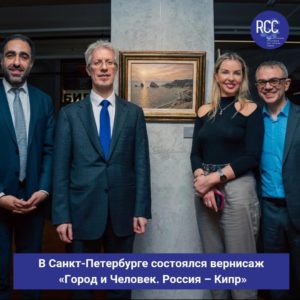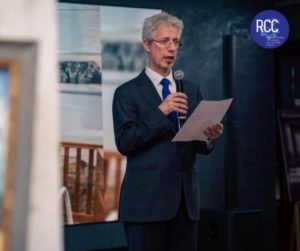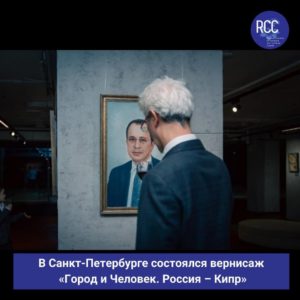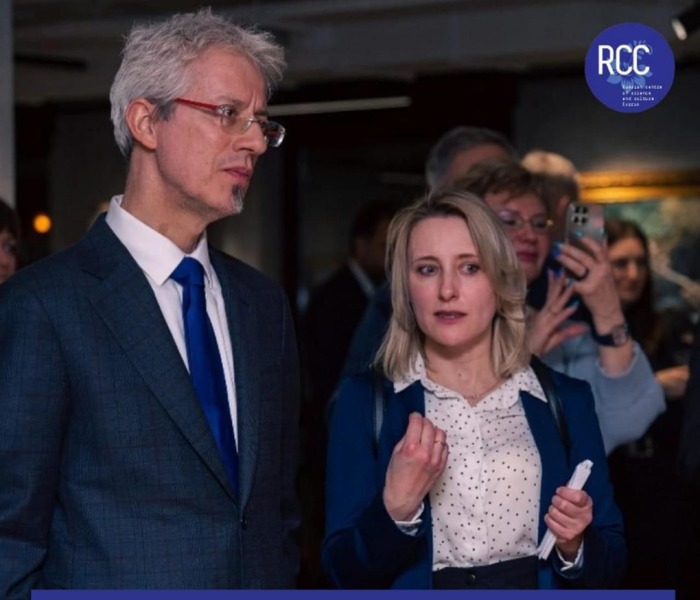The full-scale military invasion of Ukraine in February 2022 has moved Putin’s Russia into the category of pariah states. Its status as a dictatorial aggressor state has deprived Russia of many of its previous opportunities in the international arena.
Decades-long ties with the outside world have been severed or severely limited, leaving the Kremlin without many tools of influence and espionage abroad. Under these circumstances, any contact with the outside world becomes especially valuable. To demonstrate the futility of Western attempts to isolate Russia and maintain its influence, Moscow is seeking new, often previously unused ways to maintain and build relations with civilized European countries.

Except for Hungary, whose leadership is controlled by the Kremlin and serves as its proxy, there are no states in the European Union that have maintained full ties with Russia. However, officials of the Ministry of Foreign Affairs of the Republic of Cyprus continue to participate in various pseudo-cultural and pseudo-public events held for propaganda purposes by organizations that have clear ties with the Kremlin and the Russian security services.
CDN has already written about the grand opening of the park «Ayia Napa — Gelendzhik», organized by Russian structures and dedicated to twinning relations between the Cypriot and Russian cities. And this is during Russia’s war against Ukraine and the entire West, on the territory of a member country of the European Union.
The event was attended by the Consul General of Cyprus in Krasnodar, Nikos Vassiliou. The participation of a diplomat of an EU member state in a pro-Russian propaganda event, in the midst of war, demonstrating the friendship of a Cypriot resort town with Russia, while the European Union imposes more and more sanctions against Russia for aggression against Ukraine, looked like a clear departure from the European norms and rules of behavior towards the aggressor state.
Recently, the Ambassador of the Republic of Cyprus in Moscow, Kypros Giorgallis, took part in the same kind of propaganda action disguised as a cultural event.
«On February 16 in St. Petersburg was held a vernissage «City and Man. Russia — Cyprus,» the Russian Center for Science and Culture in Nicosia reported on its page on Facebook, which is blocked in Russia.

The exhibition was organized by the Creative Union of Artists of Russia» (section «Painting») in partnership with the ART-space Zarenkov Gallery and «Creative Universe by V.Zarenkov» with the support of the Embassy of the Republic of Cyprus in the Russian Federation and the Russian Center for Science and Culture in Nicosia.
Ambassador of the Republic of Cyprus to the Russian Federation Kypros Giorgallis was present at the evening and stated in his welcoming speech: «Art, literature, spiritual and cultural closeness of the Cypriot and Russian peoples — this is what strengthens the traditional bonds of friendship and protects our bilateral relations today, during the difficult period we are going through. And this was possible because of the talent, will, generosity, and the common desire of all participants to look to the future through creativity. Of course, the initiators of this project, respected Andrei Dubov and Tatiana Fruleva, as well as the Russian Center for Science and Culture in Nicosia, deserve our warmest gratitude.
Curiously, who and how did the ambassador of an EU member state make him say these words? After all, everything he said goes against the policy and interests of Cyprus and the European Union. At the same time, his speech can be regarded as a foreign policy propaganda success of the Russian security services that organized the event.
Cyprus supports the independence and territorial integrity of Ukraine, condemns Russia’s military invasion of Ukraine, together with the rest of the EU members imposed sanctions for it, and assists the Ukrainian people in the war against Putin’s Russia.
What strengthening of traditional bonds of friendship and protection of bilateral relations can we talk about today, during Russia’s war against the civilized world? Perhaps Ambassador Giorgallis does not know this, but Cyprus is part of the very civilized world against which Russia is waging war.
What difficult period is the ambassador of a country recognized in Russia as unfriendly to Russia talking about? And that in his understanding the difficult period is the time when Russian criminal money cannot flow freely to Cyprus, and the Kremlin oligarchs have stopped selling Cypriot passports wholesale and retail.
The presence of an ambassador of an EU member state at an event co-organized by the Russian Cultural Center in Nicosia is perplexing in itself. The Russian Center, as you know, is a representative office of Rossotrudnichestvo. That is a subdivision of the Russian security services. The gratitude of the Ambassador of Cyprus to this organization looks especially strange today. The Ambassador should know that Rossotrudnichestvo is under EU sanctions, and this makes the presence of European diplomats at events organized by it inadmissible.
The location of the event is not accidental either. The Zarenkov Gallery art space is owned by one of the central figures of the Russian agent of influence in Cyprus, Putin’s oligarch Vyacheslav Zarenkov.
Any international contacts in Putin’s Russia, especially at the official level, are controlled by the security services. And now, during the war with Ukraine, virtually all of Russia’s international activities have been reduced to the work of the secret services and their agents.
Their methods and goals can be understood by the example of such modest, ostensibly purely cultural events, which pursue completely different, propagandistic goals.
The exhibition was just a pretext for organizing yet another pro-Putin ideological action designed to demonstrate support for Russia on the part of individual diplomats in an EU country.
Besides, involving foreign officials of any level in Russian ideological special operations is one of the methods of recruitment by the Russian security services. There is no point in making this work easier for the intelligence services.

The more Western diplomats and other officials are involved in such actions, the easier it is for Russian security services to influence them.
We can only hope that Ambassador Giorgallis is not burdened with «friendly ties» with Russia and that in the future he will be able to avoid participating in such ideological special operations of the special services of the aggressor country.

